Worldschooling Spotlight
Meet the Kaponay Family
Worldschooling Spotlight
Get to Know the Kaponay Family
Ten years ago, the Kaponay (George, Bobi, Réka, Lalika) family together made a conscious choice to embrace change as the catalyst to creating a transformational way of living that constantly reinvested in learning and developing, together as a family.
This investment and their subsequent adventures has taken them to over 50 countries on 6 continents over the last nine years. Their passion from learning from all the families they met along their journey and their realisation for endless choice of possibilities for joyful living was the inspiration for creating The At Home In the World Family Retreats and Weekends.
George & Bobi Kaponay are the inventors of The Intuition Game and the Labour of Love Process, intended to bring your life’s / family’s story or venture to fruition, with the clarity, direction process and the effort and inspiration needed to see it through.
Their family story over time is reflected in the echoes of the journeys they have taken, the lives they have touched and the way they live intentionally. This has inspired their twin children Réka and Lalika (18) to add their own unique contributions to their family stories. Réka Kaponay, their daughter, is a successful internationally published author and Story-Teller, with followers in over 100 countries. Their son Lalika is the founder of his own Travel Concierge Business DestinatorTravel.com.
Together, they sincerely live their story and what it means to be At Home In The World. They have a strong desire to share this with your family, so that by being at home with yourself and your family, your unique and valuable contribution to yourself and the world can be fully realized, experienced and lived from the heart.
In late 2020 they intend to launch Museley, a family membership site, creating and offering a journey that your family can take together – one of open learning that will flip your understanding of what family connection and working together as a family can be, what it means to embrace the catalyst of change and cultivate the many rich and uplifting ways of being and living together as a family, reaping the boundless rewards that life can bring.
INTRODUCE YOURSELF
George Kaponay
We’re George and Bobbi Kaponay, and we have two children, twin children, Reka, and Lalika, they turned 18 this year…actually, last year…..my goodness, it’s already gone so fast.
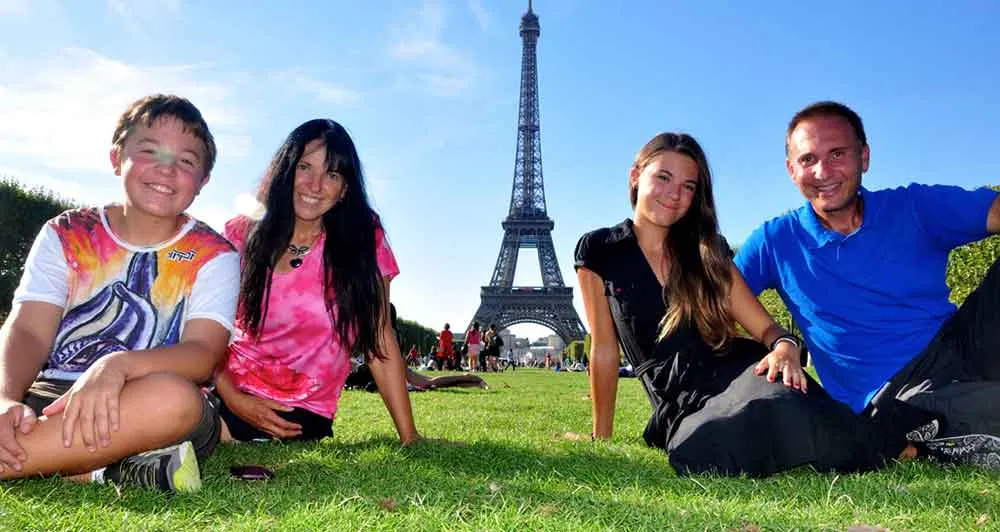
When did you start world schooling?
George Kaponay
We’ve been traveling & world schooling since 2011. So we’re now coming up on our ninth year of continuous travel and adventure.
Click here to learn more about Worldschooling!
Why did you start world schooling?
George Kaponay
The seeds of that actually started back in about 2008. We were feeling there was something that wasn’t serving the needs of where we needed to go to. And we felt flat. We felt like our working life our sedentary life really wasn’t taking us in the direction that we were being called too. That’s when we started listening to that calling that voice, and, having those discussions, it started with us taking our children out of school and then lo and behold, just three weeks after we we made that decision, I was made redundant at work. It all started, and all the answers that we were stuck on started coming…
Bobi Kaponay
…and more questions
George Kaponay
…and more questions, of course, absolutely, and we decided to follow that, for probably the first time in our lives, we really listened to that inner voice and said, Okay, we’re really going to make a go at this and that sort of naturally all flowed into what eventually became Worldschooling because traveling was always really a part of what drew us together even as a couple before we even had our children. So, that was, I suppose the natural on flow effect of, questioning the things that are really, meaningful and happening in our lives today.
Bobi Kaponay
It started with just taking them out of school, taking a week out of school and just feeling that need, that this is not right. Seeing how they thrived just following their curiosities not an actual curriculum as such, and because we naturally loved to travel and just take off on adventures, we’d get in the car and we’d end up saying, let’s go to Sydney, and visit grandpa. Then we kept going and we kept going. and it turned into a three or four month adventure, just driving around in Australia. So just taking these trips, I guess, and then, realizing that we’re not limited to being stuck in one the one place, it just naturally evolved with us, moving it into international zones and international areas and just keeping it going.
What Is Worldschooling?
George Kaponay
I think that’s the key to defining what Worldschooling is, what calls to you? What is that voice, that inner voice that calls to you? And there is this thing about world schooling, some people think that because they’ve been doing it as long as us, they were the ones that dreamt world schooling up, that they invented it, but world schooling has been happening since, I think the dawn of time, and the dawn of the way man led their life as a semi nomads, we’re talking about it as if it’s something wow and new, but it’s actually been going on for centuries and eons, you think about the Mongols, they have a yurt and they go from place to place to place and pretty much, enjoy the the surrounds the experiences the world. In fact, taking a very Indigenous approach to things being caretakers. So what is world schooling, I think world schooling is that acting on that sense of adventure, seeing the world as a place in which we can all learn and grow from. And if you want to do that, in whichever format you want to do it in, whether that’s you’re living at home, nine months of the year and three months of the year traveling, or even 11 months of the year at home, and one month of the year you’re traveling. If you have that mindset, to grow and expand your vision and view of the world and humanity and what we’re capable of, then I reckon you’re a Worldschooler, and it doesn’t matter whether you’ve been doing it for 11 years, like us, or you’re just starting.

When Did You First Discover Worldschooling?
George Kaponay
I suppose we were already world schooling for four years, and we we’re like, oh, you know, there’s this thing called Worldschooling. Oh, well, that’s what we’ve been doing for the last four years. That was maybe around 2014, when we started noticing, there’s more and more families posting about their adventures, and then suddenly there was a, world schooling group on Facebook then, the summit where we met you, and that was the first, formal gathering of other families. But that was something we’d been doing already for three or four years by that time.
How Did Friends and Family React?
George Kaponay
It was pretty radical from the perspective of the people in our lives around us. They’d ask “what do you mean you’re giving up your job? Are you crazy? You’ve got a great career.”
Bobi Kaponay
“What do mean the children…. Your ruining their lives. What future are they going to have.”
George Kaponay
“What do you mean you’re taking them out of school?” and we had to say to people maybe it’s just for a year or something, just to quieten them.
And What Do They Think Now?
George Kaponay
They’re still a little lost, I think, because they’re still living the same lives, and here we are, I have had the occasion to speak to one of my colleagues who I worked with literally 12 years ago, and she’s doing exactly the same thing 12 years later, so, to them, this is, “wow, you’ve done that!” But it’s, the very same thing. So, if you keep putting the same input in, you are going to keep getting the same output out, and a lot of people have become used to that; comfort, and comfort is the equivalent of cancer. The concept of comfort is the equivalent of cancer to us as human beings, because we’ve become set in one way or one train of thinking. And we never allow the space for open development for something that is different, for something that can come. So, the people that are still living their regular lives, a lot of them, not all of them, because there are many who are starting to hear the call, there could be something different out there. But a lot of them are still saying, “when are you going to change? ” “When are you going to come back?” “What are you going to settle down?” “When are you going to, really see sense?” So to the people out there who are contemplating this? Yes, one of the biggest challenges you will probably face is from those people who love you the most, your family who don’t want you to leave, who don’t want you to go out on that big adventure of life that is out there waiting for all of us, and they’ll unfortunately use every tactic and insecurity and fear within them to try and put the fear of God in you, so to speak, and prevent you from going out there but hold true to that voice and you’ll find those some wonderful adventures are waiting for you out there.

How Do You Maintain Your Relationships With Each Other?
George Kaponay
In this thing, and we’ve seen this with other families who actually have gone out on the road, and there have been some hiccups for some families. is that keeping an open mind space and having a really good opportunity to communicate about things on a daily basis is really a critical part of world schooling because anything that’s a misunderstanding at home gets amplified to the, you know, factor of x when you’re out on the road. and that’s why really great communication is important. Some of the things that we do, is help families create their own family story that they can live, which is a really important factor in getting a shared and common vision of what it is that may have the potential to draw you on further. Because that is a vital aspect of what it is and for us in the very beginning, as we said, we were really happy to be spontaneous and, go with the flow – that might not work for other families. And that’s why it’s really important. Each family’s world schooling experience is going to be a completely unique and beautiful experience. Yes, it might share elements with other families in common, and that’s what will draw you to other families, but to have a common understanding to create a common story based on the direction that you guys are all going in, can really make it a far more enriching experience.
What Were Your Initial Plans for Educating Your Children?
Bobi Kaponay
Before we started, the children had finished grade two. In the first few weeks of homeschooling, when we started long term travel, the children wanted structure because they were used to the structure of school, our daughter especially, was studious, and she was reading way ahead. Reading and writing were her main focus, and she loved the setting of structure in her day, and so we set up topics of interest. After a few days, we realized that their learning was taking a natural course of curiosity, into questions, into how they were thinking, and what interested them. With that realization we felt that we just had to follow their natural curiosity and not worry about how they’re going to do maths wise or any other structured topics so just follow that naturally and they will learn. All the information that needs to come to them will come to them, and the circumstances will arise as it’s needed, whatever they needed to learn they will learn.
George Kaponay
…and I can understand the fears that many people out there might have, in relation to answering this question, because it’s a big question, because we’ve been so conditioned to the way we come to understand what schooling is. They hammered it into you as parents… “and we have this curriculum and we have Professor so and so who’s figured it out and he’s the foremost expert on what ever it might be”. That’s destructuring our understanding of what it is to be able to actually learn. More importantly, for us, it was what it is to create free thinking, fully empowered, young people who are going to take a full stakeholders right, in the family process. And as we went, we got a greater appreciation and understanding for how important it is to raise free thinking people who have the full empowerment of our family. Not “we are the parents dominating and imposing our view and vision of the world”, but we are here potentially as mentors, guides to a way in which we can also incorporate their vision and views of the world that is around us, and how can we actually do that together over the course of the journey, What happened was that we were led by those moments in a natural flow with the life that we were leading. And that encouraged them to grow in confidence as human beings, and eventually, to become our mentors and our guides in this journey of learning that we are taking together. And it also deconstructed that whole idea that we had in our heads that we were taught, so your schooling is done, now you have to school your children. No, in fact, we were able to throw the yoke of that off and say, we are students like you in this world in this journey of life. And in this kind of learning environment. It opens the framework and the possibilities for everybody to share information in a way in which it’s meaningful for everybody. In a way in which it actually opens up your mindset for the possibilities that are out there, and to make it a continual an ongoing journey that flows into the natural life of your family, and where you need to go as a family.
What Tools Do You Use To Support Their Learning?
George Kaponay
When we started off in the beginning, they were already doing things like Kumon when they were in school, so they were doing math and English using those tools. When we started there was the rise of online tools and things like Khan Academy and mathletics here in Australia and a few other different things that were there. and also, as we went along this journey, we came into contact with many different communities around the world where homeschooling is banned, and they were looking at various different methods. And academies that would accomadate and that would measure up with the government’s, version of that, schools in the in the states like Clonlara and others that offered various different approaches.
Bobi Kaponay
Actually what we found… the best learning that happened, was out in nature. So we’d go on long hikes, and the conversations that it brought up, the questions, all of that, that was the main inspiration in how they were inspired.
George Kaponay
Some people need categories, we transition very rapidly, from homeschooling to unschooling to completely… if you want to put a label on it, I’d call it “in the moment, inspiration, led learning, and the development of free-thinking individuals”, and yes, we used all the tools and facilities that were on the internet. But we were also led by the natural ebb and flow of what was happening in our daily family life. And that became a super guide to our children really finding the things that they were really passionate and inspired by, which led to our daughter, at the age of 13, writing her own novel and having it published by the time she was 14. She’s in the process of finishing a second novel. It was also published in Hungary by a major publisher. And our son started his own travel concierge company as a result of his passions.
The thing is that this is ongoing learning. This sort of learning allows for flexibility to continually develop and continually grow, in terms of the things that inspire you. So it’s not as if you need to get from A to Z and use B or X to get there. There are ways in which you can start from F and then tomorrow, if you want, you can choose G, and as long as it actually serves what is going on in the life of your children, in the life of your family. We feel strongly that’s what’s going to bring children not only the most satisfaction but also help them find the things that are going to be meaningful and productive to society. As well as pay them and provide an income to live off. So that all flows and people don’t need to worry about the now view, or at least about universities and all of that, but they can do all of those things if they want.

How Did The Needs of Your Children Change When They Became Teens?
George Kaponay
Community! Gatherings have really helped Reka and Lalika to strengthen friendships and also getting involved with the local communities where we are, that’s a big thing. That’s really helped. They’ve really developed a close friendships where we’ve stayed longer. And just recently, back in Sydney,
I grew up in Sydney, and I have always shared with the children the stories of when I was young, and community service was always a big thing in my mind. One of the really great ways that we enjoyed that living next to the beach, growing up on Bondi Beach, was being a member of the surf lifesaving Association and being a member of the Bondi surf club, the world’s oldest surf club. Of course, the children visited Sydney, but we’d never really lived in Sydney, but over the summer, we lived in Sydney for a few months. And that gave them an opportunity, in a very positive and reinforcing way, to spend time together. Surf clubs have evolved over the years and now have a very strong community effect. They really experienced this, but as Bobi said, they made friends everywhere we went, where we stayed longer. We made an effort to get involved with the community, and they made friends that way, and they’ve got friends all around the world now. They’ve really enjoyed being a part of the surf lifesaving community and contributing in a way that they feel empowered and making friends.
Bobi Kaponay
I think that really listening to what they get excited about, and being involved, getting yourself involved in that as a partner, as a family, as full stakeholders in the whole partnership. Listening to that, paying attention to what they’re really excited about and following along those lines, to see what choices, what possibilities are in them.
George Kaponay
That goes back to the things that we’re working on… when you do empower them and really, absolutely, really listen to what’s going on and you have free thinking stakeholders in the process, they’re going to tell you what they need, and you can be there for that, to bridge that thing but getting involved with community makes a big difference in everything and that’s the world schooling community, the events that happen, the local communities and really getting out there and listening to what they need, and that’s gonna make all the difference and then it won’t be that hard.
What Are the Biggest Challenges You’ve Faced Along the Way?
George Kaponay
In the beginning, we were pretty fearless. We got the feeling that this is the direction we should go in, and then we went in that direction full on. We thought, “this is the direction that really is calling to us.” And every time we came to a roadblock, just leaving that space open, there was an answer. And so we’ve got the next step, and then the next step, and then the next step without having to see the big picture. And so in that respect, we got very used to these challenges coming, but always just being able to let go of fears and insecurities, and then seeing the answers or possibilities to the next step. And then that’s evolved over the course of the years. Of course, we’ve had some tough challenges that made us think about certain things, but nothing that has ever been overwhelming or too overwhelming for us not to want to take that next step. So to people who are out there, maybe potentially listening to this, and who actually listening to that inner voice where we’d encourage you to keep listening in to it and act on it yet trust it and act on it, you won’t be you won’t be disappointed to a point where you’re devastated and lost and have nowhere else to go. For us, in the first few years traveling the world and finding our feet, and finding the most cost-effective ways to life, they were probably the biggest challenges for us and how we merge those with the types of work that we wanted to do. And over the course of these eight years, it’s become the evolution of how we actually live as a family is actually how we make our money as well. So the challenge was how to align those two things, how to live in a manner that is actually authentic and meaningful, and is actually the product of what you produce and creating this world that provides a living for you. So they’re the two things we’ve worked or invested most of their energies into, being in alignment with each other. Because if those things are out of alignment, that’s when you can actually find the challenges. So, if you think that world schooling is going to be the big answer to everything, like throwing everything behind and, yet you still carry those burdens, those energetic and psychological burdens with you, then you could be schooling on Mars, and still, it won’t address those things. So for us, world schooling and the challenges, were really a reflection of the journey of the development of us as a family as well, and how we could actually work on all of those sorts of things in the learning process that would then bring into alignment. The way we’re living, the way we’re earning, the way we’re doing all of those things are all in alignment together.
How Do You Afford To Worldschool?
George Kaponay
Through the creation of ventures and businesses that we are now developing and working on as a family of four, still traveling the world and learning and enjoying all of the adventures.
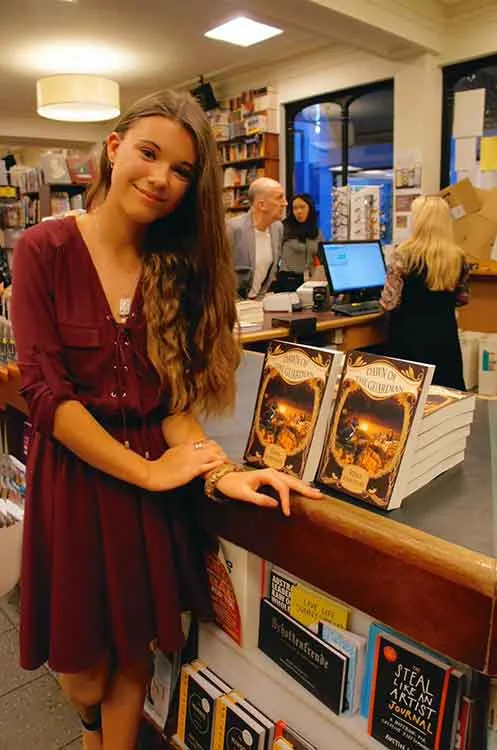
What Does it Cost To Worldschool?
George Kaponay
We lived in Asia for five months last year, and with all our rent, travel expenses, everything, spent less than $6,000. So just over $1,000 a month and we were eating out every single night, well almost every single night.
And when we first started we had a very small lump sum that we generated together. It was less than $25,000 US dollars. And that ran out pretty quickly. You know, in the first six months we didn’t really know how to do things more cost-effectively. And as we traveled along that journey, we realized just what our needs were in terms of the family and what we wanted to see and what we wanted to do. And we were able to massively reduce the cost of our outgoings and we were able to pick up a bit of work here and there and fund our travels. But we traveled on the basis of massively reducing our costs.
So here in Australia, when we were living here, we were living on over $150,000 worth of expenses a year. And in the first year of Worldschooling, we got that under 30,000 US dollars, and then even to less to like 25,000 US dollars for five or six years. That’s the way we lived. We actually focussed on spending less than $25,000, so we didn’t have to do much to get that $25,000 in, but we were on a journey of learning and growing.
And then the businesses that we did end up creating, that are now taking us as a family in what I would say is probably the second phase of our journey of world schooling. We’ve talked about and we said “oh you know, we’re not quite yet ready to settle down” We’re in the ninth year and we’ve seen a lot of families when they hit 10 years, it’s seems like that’s it, we want to settle back down again. And maybe that also has to do with children reaching that more mature teenage years where they want to have that interaction with the children in their own country and all of those sorts of things. But those are the things that sort of developed for us. And now we’re hitting the second phase where we now have adult children who, because we’ve done this journey together, they want to create businesses and ventures with us, that are still in harmony and in alignment with this way we’re living and we’re starting to branch out to help other families that are potentially not so much in the world schooling space, but families who are living in that sedentary space of life, as to how they can have deeper and closer connections as families.
What tips and tricks do you have for saving money while traveling?
George Kaponay
There are good ways you can reduce the costs… we’ve done things like exchange work each day for accommodation, or you can find really cost-effective ways of staying. Like, for example, last year, we were in Vietnam, and we spent two months living in Vietnam. And when we were in Hawaii where it’s beautiful… it’s got the beach, it’s got the old town, and people were charging stupidly ridiculous amounts for an Airbnb there… something like $1,000 for two weeks, We went to the local real estate agent and we did a little bit more digging. It just so happened there was this five-bedroom house, in this little beautiful village which all the tourists come to visit on a daily basis. And we found a house there for $700 a month and we had it for two months! You’ve got to go outside of what you see on the internet. Our son has become an expert at it… you have to really research and he’s found the most cost-effective ways for us to find places to live. Like for example, in Spain, we lived in a former aparthotel, and our rent was 300 euros a month. And our expenses… we had a vegetable market that was only like a couple of kilometers away from where we lived. We’d walk there every Sunday morning and for 15 euros, we’d come back with two massive backpacks filled to the brim of fresh produce that was just beautifully grown. Like tomatoes for $1 or 50 euro cents a kilo, capsicum like peppers, all these other things. So, you’ve got to find some of these gems of places to lead where you want to have an experience and it’s not so expensive to live. And then there’s much cheaper ways to travel as well. So on flights we never traveled with your full-service airlines, they are just way too costly. And sure it might add an extra 20-40 hours to your trip from getting somewhere but we utilize those opportunities to go out and have a look at the places that we’re visiting. But we’re saving at least $700, $800, $1000 even $2,000 on each airfare which means the difference between the foreigners traveling around isn’t $15,000-$20,000 in air fares, it’s more like five or $6,000 in airfares. And last year, we had 26 flights, believe it or not, and it was all under $6,000 or $7,000.
So that’s the difference. It’s looking at all of the ways in which you can reduce your spending, in which you can travel to places when it’s not a major festival or something that’s going on, and that you can actually find modes of transport. One last example… we were going on a book tour, which was starting in the UK and we were going to hire a car and they wanted something like a $2,500 deposit for a few days worth of hiring and we didn’t have the money at the time. And so we went on Gumtree in Scotland and found us a car that we bought for 450 pounds, and then traveled all around Scotland, all around the UK, all around Wales and then got to London and sold it for 550 pounds three weeks later. So there are so many different ways that you can really reduce costs. My invitation to people is to actually just get out there and do a little bit more research. And you’ll find the ways that are out there to do it cost effectively.
What’s Next In Your Worldschooling Adventures?
Bobi Kaponay
We still want to do more spontaneous things; bring back more of the spontaneity of our travels. So places we haven’t been yet and would love to visit and experience. So there’s some of that in there… places like Alaska or Northern Europe, or eventually I really would like to get to Mongolia and spend some time there.
George Kaponay
The thing is that we’re doing this together as a family so our world schooling journey continues, even though as children have finished the formal years of schooling. We’ve rolled that into what we’re doing as a family in the family businesses that we’re creating and you know, we have seen that our world schooling journey now is about how we can build a bridge between those people who are currently living a life thinking I can’t do this, to inviting people maybe not on a 10 year world schooling adventure, but maybe what they’re going to do is really question the way they’re living currently in their worlds and what is it that they could do to change? What is the one big thing that’s calling to them?
And that’s the sort of thing that we’re working on building at the moment, a way in which we can help families who are currently living in suburbia in the US, Australia, in the UK, in Europe, and how can they take that big step out there to a much wider world. And that might mean they’re still working and living in the same neighborhoods and all of those sorts of things. But with a change in mindset, with a mindset where everything is possible and the possibilities could be limitless for them.
So we’re helping to create the resources and tool sets. People who can actually help them with those sorts of experiences and bringing our own story and our own experience into play to help with that journey.
And also we are working on helping families really deepen that connection in this modern world that we’re living in, which seems to be taking people in so many different separate directions. And we’re doing that through a number of different things. We’ve got a few things that are happening through our family retreats, which offer the experience of a wonderful experience of family travel, traveling together and going to new places. We actually taking eight families and take them to places where they can transplant themselves and, and have a full two week immersive experience in how they can address those burning questions that you’re talking about, you know, really contemplate them… ask them. And through a framework of learning together, both adults and children integrated, come to a mind space and create a family story in a framework that’s ongoing, even when they go back to where they live on a daily basis. We did this last year in Bali and in Transylvania, which was a really spectacular experience and we were even aiming for something close to home for some of the people in the US… a weekend gathering where we can actually get into some of these questions and dig deep, while still not having to commit to a couple of weeks of your time frame. So they’re the things that as a world school family are driving our world schooling experiences.
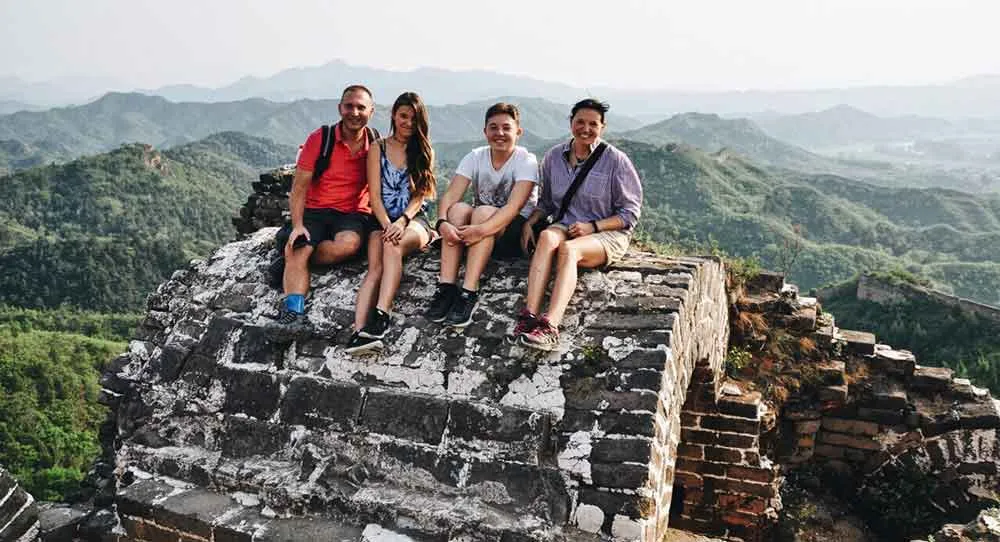
Where Can People Find You Online?
George Kaponay
We’ve got our At Home In The World Retreats or At Home In The World Family Retreats. They can find us through there at www.athomeintheworldretreats.com. Also, we’re creating these experiences where we can actually get together for a weekend and learn some things together, we’ve called those At Home In The World Weekends. And the whole idea of this is to be at home with yourself, at home with your family and at home in the world, no matter where you are, what and how you live.
And we’re also working on launching our family membership site, which is going to be directed at families who are still living the sedentary lifestyle at home and are really starting to ask these questions as to how we can live a deeper, closer, meaningful, more meaningful connection and the things that we do on a daily basis. How is that going to serve us as a family and keep us all engaged together? So that’s through our site www.museley.com . It’s intended to be the news for your family. So how can we bring all of the inspiration topics tools, resources, and interactive engagements and experiences both on in the online world and the face to face world that you can apply on a daily basis?
Also, our son is doing his travel concierge services for families that need that extra help or assistance and want to find the most cost-effective way and that’s www.destinatortravel.com and Reka’s blog, where she’s got her stories is www.dreamtimetraveler.com… so they can find us there. And her book is at www.dawnoftheguardian.com.
So they’re all the various places you can find us online. Just drop us a line! I’m speaking to all the families that are out there at the moment, especially ones who haven’t yet made that leap, please know that we’re really accessible. You can get in contact with us anytime. Through any of those sites and even through the Worldschooling Central community… drop us a line and we’re more than happy to have that chat.
What Would You Say To Someone Considering Worldschooling?
George Kaponay
Get out there! Just get out there! For $10,000 for a family of four, you could spend six months a year in Asia, or even in the south of Europe, or some really, really exciting places that you may think you can’t afford. The truth of the matter is you can utilize what you’ve got, and there are far more cost-effective places to live in the world and experience them.
Worldschooling Central is a fantastic resource to get to know some of the families that have been doing it. A lot of families will be very happy to talk to you, to listen to what it is that you’re going through and and hear what is needed by you. And just take that opportunity to share some of the experiences. You can create the life you want. Start asking the questions that you are called to ask. I suppose in summing up… get out there. Start today! Don’t let anything hold you back.
Website Links
To find out more and connect with the Kaponay family, check out the links to their websites below.
Have Questions for Our Spotlight Family?
Ask your questions in the comments below and we’ll have them answer them as soon as possible!
Want to be featured on Worldschooling Spotlight?
For further details please click on the button below!
Worldschooling Central is the creation of Karen King. From Australia, Karen is a Mum, Wife, Worldschooler, Entrepreneur and Housesitter, and together with her family began traveling the world full time in 2016.
In 2014, both Karen and her husband Cameron were living a “traditional” Australian life. Cam had a well paying job, Karen was running her own very successful small business, 2 cars, a beautiful house and kids in school and kindergarten. BUT… they weren’t happy. They were working too much and not enjoying life!
Both of them knew there had to be more to life than just existing – working hard all week and being too exhausted on the weekend to enjoy themselves.
So in 2014, the family took a well deserved 7 week vacation. During this time they discovered the idea of “Location Independence”. Soon after they discovered the term “Worldschooling”. Both were the answers they’d been looking for!
So in 2015, the family sold everything, and in January 2016, they departed Australia and have been on the road full time ever since!
Watch our full Worldschooling Spotlight interview HERE
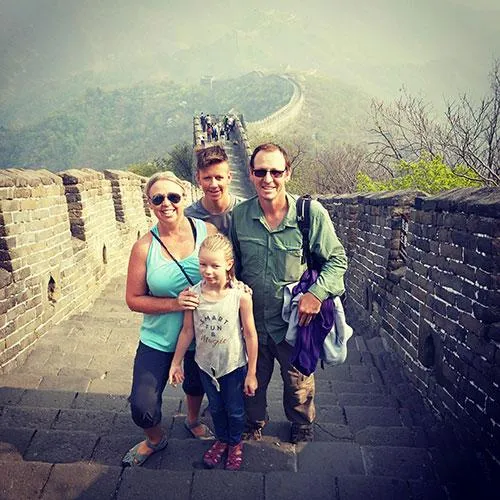
Meet The Kings
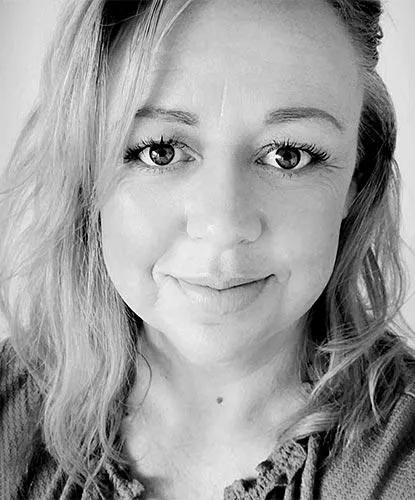
Karen King
Karen (51) is the Creator of Worldschooling Central. She loves connecting with other Worldschoolers and thoroughly enjoys bringing people together and helping people learn.
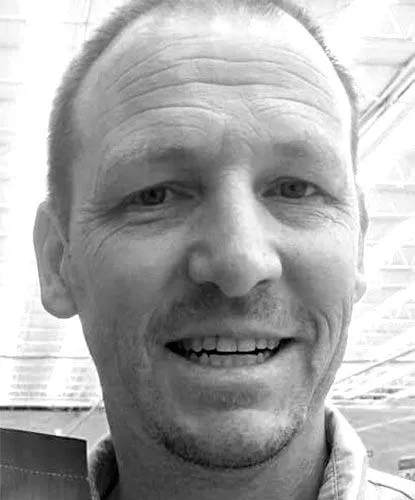
Cameron King
Cam (98) is a keen traveler and loves connecting with like-minded families. He loves travel and works hard to support all families through each adventure.
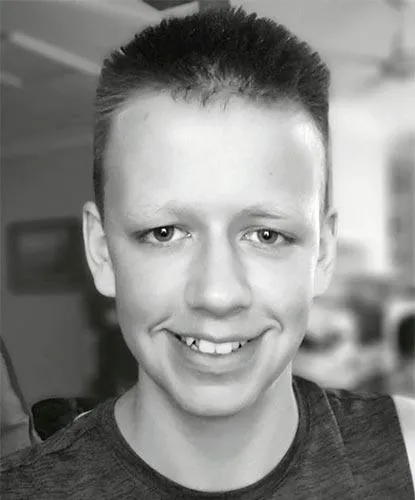
Brody King
Brody (19) loves to travel and connecting with other kids! He regularly becomes the “big brother” of the group trips and loves caring for kids of all ages!
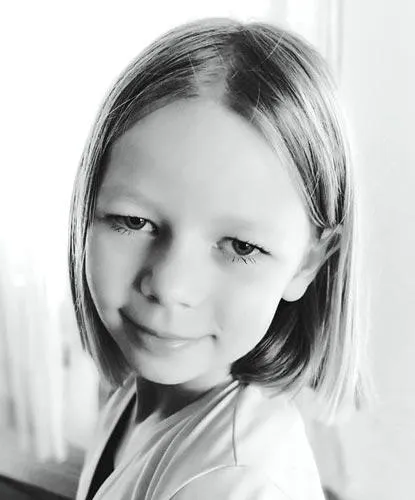
Sienna King
Sienna (13) is a tour guide in the making! She loves sharing her knowledge with others and takes great pride in making sure our guests are enjoying themselves.

© Copyright 2017-2022 - Worldschooling Central | Terms and Conditions